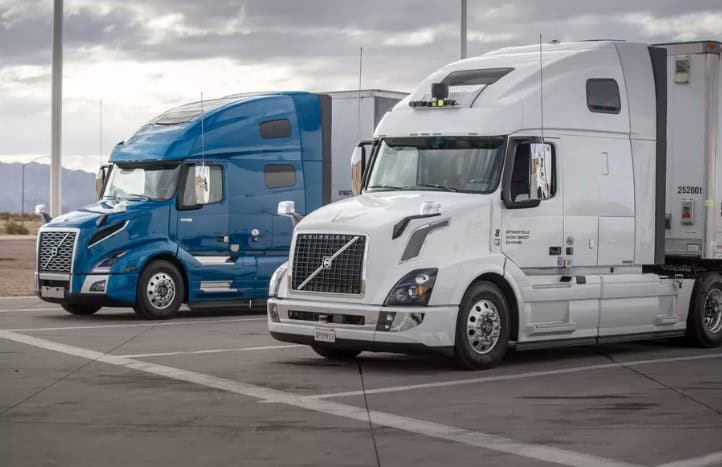
Uber’s big push to dominate the future of the trucking industry is dead. The ride-hailing company has decided to shutter its self-driving truck project, according to TechCrunch. A spokesperson confirmed the decision.
Employees who have been working on Uber’s self-driving trucks will be shifted to the company’s larger autonomous car efforts. Uber says it will continue working on its in-house lidar project, and that Uber Freight, the company’s on-demand logistics side-project, will be unaffected by the decision.
“We’ve decided to stop development on our self-driving truck program and move forward exclusively with cars,” Eric Meyhofer, head of Uber Advanced Technologies Group, said in a statement. “We recently took the important step of returning to public roads in Pittsburgh, and as we look to continue that momentum, we believe having our entire team’s energy and expertise focused on this effort is the best path forward.”
The project stemmed from Uber’s controversial acquisition of a self-driving truck startup called Otto in 2016. Soon after, the company staged a bold (and possibly illegal) shipment of Budweiser beer via a self-driving truck in Colorado. But the acquisition sparked a bitter legal dispute with Waymo, the self-driving car division of Google parent Alphabet. Waymo alleged that Otto was a shell company meant to deliver stolen technology by Anthony Levandowski, a former Google engineer who founded the startup and was later appointed head of Uber’s autonomous division.
But less than a week after the start of the trial, the two companies reached a surprise settlement. Uber agreed to give Waymo $245 million worth of Uber’s private shares at its 2015 valuation, while Waymo said it would ensure Uber’s self-driving car program doesn’t use Waymo’s purported trade secrets. With the legal cloud lifted, Uber was poised to ramp up its autonomous truck operation.
But then in mid-March, a self-driving Uber vehicle struck and killed a 49-year-old woman crossing the street in Tempe, Arizona. Uber immediately grounded its fleet as federal investigators began to probe what went wrong. Uber subsequently laid off hundreds of safety drivers in Arizona and Pittsburgh, and only recently has begun to take steps to relaunch its testing. Last week, Uber’s self-driving cars reappeared on public roads in Pittsburgh, but under human control for now.
The conventional wisdom is that self-driving technology will arrive at scale in the trucking industry before anywhere else. So it’s surprising that Uber would pull out of what stands to become a highly lucrative market.

